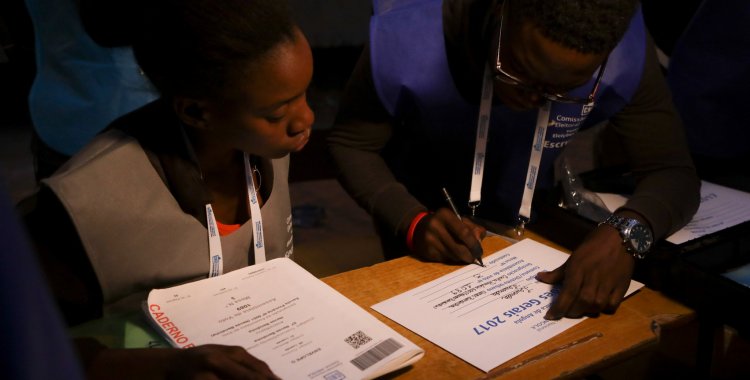The statute passed this Wednesday with 127 votes in favour, 47 against and no abstentions during the first ordinary plenary meeting of the fifth legislative session of the fourth legislature of the National Assembly.
For MPLA deputy António Paulo, the approval of the law "shows that the political class is committed" to deepening the democratic and legal State, affirming, however, that the road to travel "is still long".
The National Union for the Total Independence of Angola (UNITA) voted against the bill as it considers that it "despite including, in a perverse way, an initial proposal" presented by the largest opposition party, "does not prevent public funds from being used for electoral purposes".
"We also voted against because the change was not aimed at allowing biometric control of voters, to ensure electoral certification, integrity, transparency and truth", argued UNITA MP Mihaela Weba, in her declaration of vote.
By the Broad Convergence for the Salvation of Angola – Electoral Coalition (CASA-CE, opposition), the vote against was justified by deputy André Mendes de Carvalho, who argued that the country "lost an opportunity to have a consensus law".
Benedito Daniel, president and deputy of the Social Renewal Party (PRS), recognized, in his speech, the good will of the Angolan President, considering, however, that the "reappraisal of the diploma was not substantial". "It did not produce the deeds that the Angolans intended", he fired, as he presented his declaration of vote against.
The deputy of the National Front for the Liberation of Angola (FNLA), Lucas Ngonda, said that the law now approved "did not respond to the expectation that motivated his return to parliament".
The bill amending the Organic Law on General Elections returned to parliament after President João Lourenço asked for the reconsideration of some of its rules, namely those relating to electoral corruption and the ban on timely openings of undertakings or public works of electoral campaign.
The deputies also approved, as a whole, the draft law authorizing the National Bank of Angola to issue and put into circulation the commemorative coin commemorating 20 years of peace in the country, the draft Organic Law of the Courts of Appeal and the proposal for Organic Law on the Organization and Functioning of the Supreme Court.
Parliament passed second deliberation of law on lead opposition general elections
In the second deliberation, the parliament approved the draft law that amends the Organic Law on General Elections, with only favorable votes from the Popular Movement for the Liberation of Angola (MPLA).







